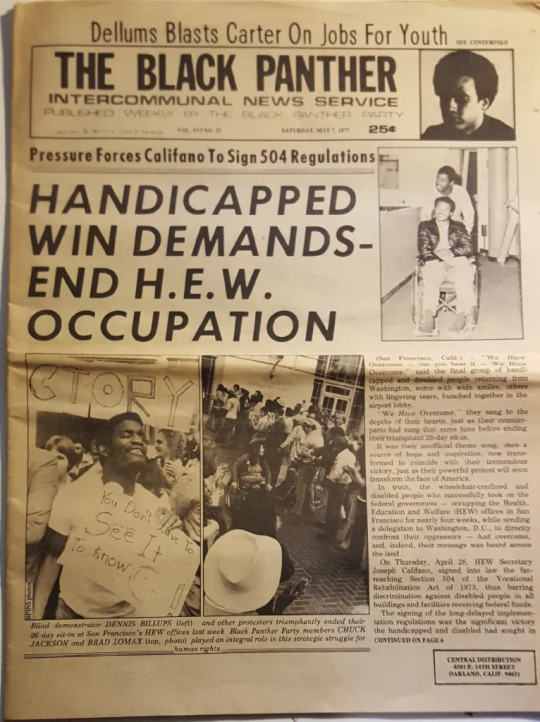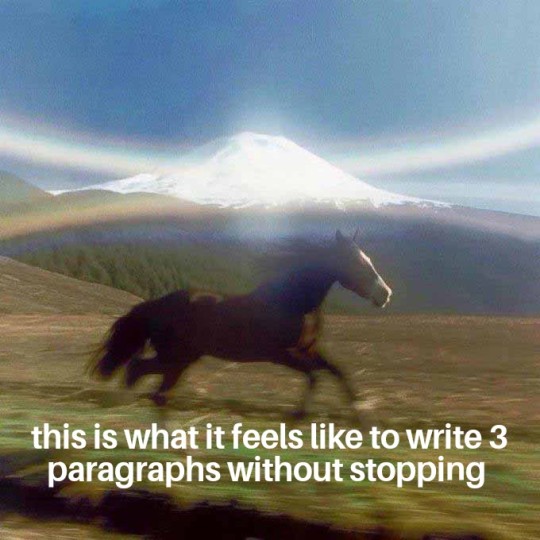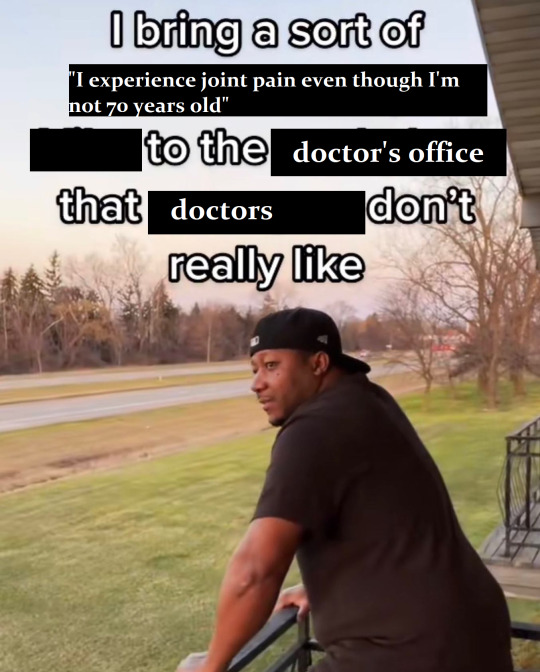Text
“surely this will not cause my chronic illness to flare up,” i say, actively doing something that has never failed to flare my chronic illness
24K notes
·
View notes
Text
Making fun of someone using a cane is so fucking funny to me
Like yes Barbra go off on me, a young person for using a mobility aid, please ignore how it’s literally a metal pipe and you’re in bonking range
-Rayne
(Ps we use mobility aids- specially canes)
477 notes
·
View notes
Text
IM SO MAD AT THE SHAME SOCIETY PLACES ON DYNAMIC DISABILITIES
yes, I was walking unaided yesterday; yes, I am using forearm crutches today
yes, I was using forearm crutches but left them behind to go to the bathroom yesterday; yes, I need to use them even to walk two steps today
yes, I went up the stairs unaided yesterday; yes, I needed my crutches to go up to the stairs today; yes, tomorrow I might need to scooch upstairs on my ass because I won't be able to walk them
yes, I walked unaided to the car to get my crutches out of the car in the morning; yes, I will use them to go on a walk in the afternoon
DISABILITY CAN BE DYNAMIC, MOST PEOPLE ARENT ON A FIXED POINT OF SUPPORT NEEDS AND MOBILITY, WE'LL HAVE GOOD AND BAD DAYS AND I DONT NEED TO EXPLAIN MYSELF TO YOU
7K notes
·
View notes
Text
Crip Camp: A Lesson on Community Care and Intersectionality
No trigger warnings apply
In 2020, I was a sixteen year old, newly realising that I couldn’t fight against my disabled body forever and looking for a community. I felt alone and I felt incapable of making any change. I was tired of fighting the medical system and feeling like I was the problem when my school refused me the accommodations I needed. It was this sixteen year old girl who watched a documentary and for the first time saw a different vision of what life and activism as a disabled person could look like.
Crip Camp (2020) is a documentary released on Netflix that tells the story of how a small camp for disabled teens in upstate New York, Camp Jened, bred a generation of disability rights activists. The campers tell the story of their decades long journey to getting the Americans with Disabilities Act (ADA) passed and the impact of having a space where disability was not a burden. It is a touching story of finding community and the power of a dedicated and intersectional fight for civil rights. A key voice in the documentary is Judy Heumann, one of the organisers of the San Francisco Health, Education and Welfare (HEW) federal building sit-in that helped trigger the passing of section 504 of the rehabilitation act. This section outlines the rights to access to federal buildings and projects for disabled people, a key step towards the final ADA. The HEW sit-in was part of a wider series of sit-ins of federal buildings across the US, but the San Francisco HEW sit-in was able to last the longest at 25 days, the longest federal building sit-in in US history. A key reason for their resilience highlighted in the documentary was the support of the Black Panthers Party.
The Black Panthers Party was well known for their efforts in feeding their communities, particularly through their famous free breakfast programmes. They built up a strong culture of community care, understanding that if the government wouldn’t protect their people, the community must. Judy Heumann and Kitty Cone of the HEWs sit-in had forged strong connections with other organisers in the bay area over a shared understanding that the fight for liberation must be intersectional to have any meaning. This community building meant the Black Panthers happily provided warm meals to the occupiers for every day of the sit-in, sustaining them physically and maintaining morale. Together, they were able to push a much stronger opposition to the apathetic government bodies and brought about the crucial section 504.

[ID: Front page of The Black Panther Intercommunal News Service paper, with the headline "Handicapped win demands - end H.E.W. occupation". The photos used highlight black disability rights advocates.]
Black Americans are disproportionately impacted by disability, often due to a combination of direct racist harms and institutional racism, be that poorer quality healthcare, reduced access to quality nutrition or unsafe housing practices. Even as recent as 2020, 13% of Black Americans had a disability compared with 11.6% amongst all other races. Employment access for disabled people is also unequal across races, with only 20.5% employment for working aged Black disabled Americans compared with 31.3% employment of their counterparts of other races. This intersection of race and disability means that both liberation movements must be acutely aware of the multiply marginalised in their group and extend special efforts to ensure their rights are protected too. This is the core principle of intersectional activism, centring the needs of the most marginalised and building a community based around caring for those in need, not competing for and hoarding resources or access.
At its core, Crip Camp is a lesson on how we are stronger together and that no voice should be considered insignificant. Through caring for and supporting eachother, we can become much stronger than any one individual could be alone. My hope is that more of our modern activist spaces can strive for this too, and that our disabled community can stop being shut out and our access needs seen as a burden. As the late Judy Heumann said, “When other people see you as a third-class citizen, the first thing you need is a belief in yourself and the knowledge that you have rights. The next thing you need is a group of friends to fight back with.” So keep fighting my friends, and look to be and find allies in all spaces where people are fighting oppression.
#disability#disability history#judy heumann#504 sit-ins#ADA rights#black panther party#black panthers#intersectionality#Crip Camp movie#movie recommendation#original writing
1 note
·
View note
Text
please be nice to me, i'm in my twenties. do you know what that does to a person
168K notes
·
View notes
Text
Get to know me!
hello, my name is Ri, I'm a 20 year old uni student in the UK and I'm creating this account to share my writing around disability topics and connect with other disabled people ^-^
I have been disabled since I was 12, but it's been a looooong journey to accepting that. I see my relationship with my disabled mind and body as an ongoing discovery process, with periods of grief, gratitude, sorrow, joy and everything in between
I don't feel the need to disclose my medical details, but my disabilities fall under neurodevelopmental, mental health, cognitive, autonomic nervous system and muscular-skeletal. I only write from my own experiences or thorough research!!
Outside of crip theory and disability liberation, I'm interested in ice hockey, video essays, UK politics, medical history and leftist history which I might post about occasionally ^-^
2 notes
·
View notes

